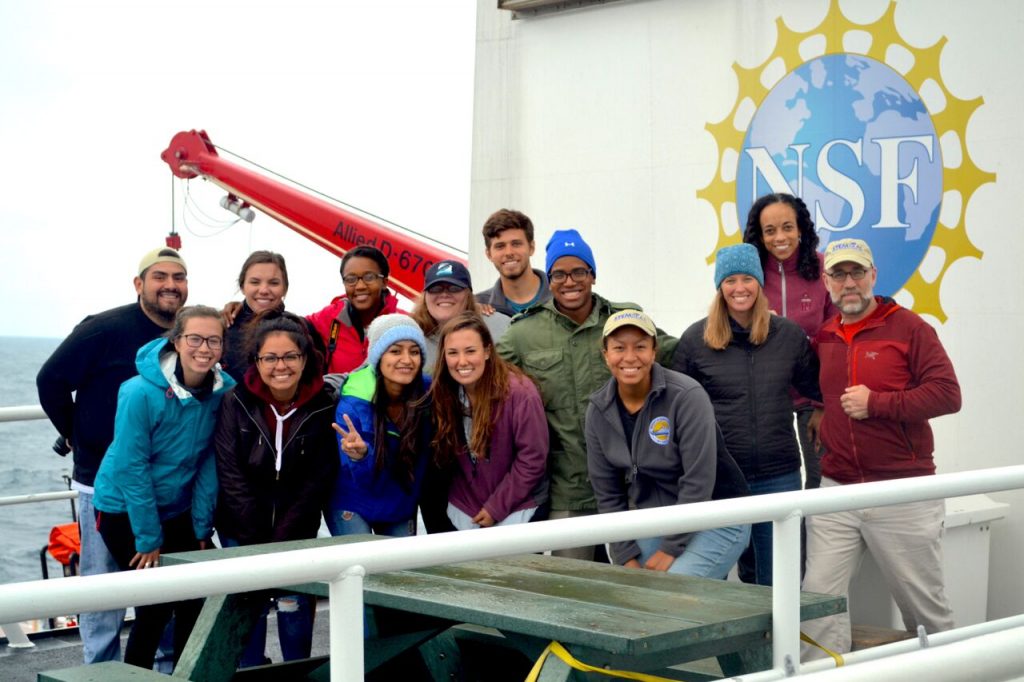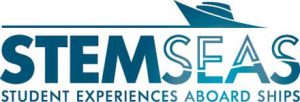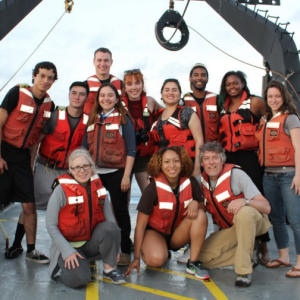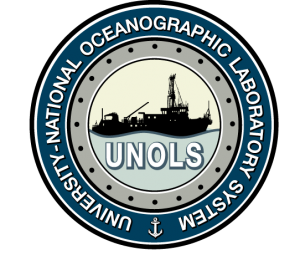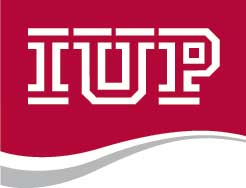Science, Technology, Engineering and Math Student Experiences Aboard Ships
STEMSEAS aims to provide ship-based, 6-10 day exploratory experiences for undergraduates aboard NSF-funded research vessels. Students will sail with experienced faculty and graduate student near-peer mentors, and engage in geoscience and oceanography activities (while also having fun)!
Most expenses (travel to/from the ports of call, materials, and living expenses while on the ship) will be paid by the program- there is very little cost to participants. Want to see what a STEMSEAS cruise is like? Watch these videos made by STEMSEAS students:
STEMSEAS: A Journey that Could Change Your Life
We also had a feature in the STEM for All Video Showcase here!
You may also want to check out this TedX talk by one of our alumni about the impact of STEMSEAS, and other programs, on her path. She talks specifically about STEMSEAS starting around 04:00, but the whole speech is inspiring!
You can also listen to a podcast featuring STEMSEAS students and another one from AGU2018 featuring an interview with STEMSEAS PIs.
Go to www.stemseas.org for our complete 2025 schedule and application!
Other opportunities may be added during the year. You can always let us know you’d like to be notified of schedule updates here. And to read a bit about past student experiences, be sure to visit our blog page .
Mentor application
Are you a STEMSEAS alum, graduate student or scientist interested in leading a STEMSEAS transit? We are always looking for excellent, enthusiastic, creative and flexible instructors and mentors! It’s rewarding, a lot of fun, and we’ll even pay you! You can apply here for these positions now or any time and we will keep your information in our files.
Application Process
To be eligible, you must be a U.S. citizen 18 years of age or over and enrolled in an accredited 2- or 4-year college or university. The application includes:
- A completed application form
- A copy of your latest unofficial transcript
- A recommendation from a professor, adviser or employer (current or former)
About the selection process: We select participants for cruises in the order they occur in the calendar. We will contact you for an interview 8-10 weeks prior to a cruise if you are a finalist. If you do not hear from us, then you are not selected for that cruise. But we will continue to consider your application for each cruise for which you’ve indicated you are available. Contact us privately with any specific questions!
Please look for updates here and on the STEMSEAS Facebook page.
Several articles about STEMSEAS:
From Eos, August 2024
From Savannah State, July 2024
From Inside HigherEd
From Eos
From Lamont Doherty Earth Observatory’s blog
From IUP News
From University of Massachusetts
From our graduate student blog
From ECOGIG
From Gallaudet
Conference Papers produced by STEMSEAS alumni and mentors:
Sharon Cooper (LDEO), Lisa White (UCMP), and Jonanthan Lewis (IUP) (2020). Addressing geoscience diversity with
innovative at-sea experiences for students and educators. European Geophysical Union General Assembly. on-line (originally
Vienna, Austria).
Sharon Cooper, Columbia University in the City of New York; Raquel Bryant, University of Massachusetts-Amherst; Jonathan
Lewis, Indiana University of Pennsylvania-Main Campus; Lisa White, University of California Museum of
Paleontology (2019). Come Out to Sea – It Will Change Your Life!. Earth Educator’s Rendezvous. Nashville, TN.
Yasmin Sharbaf, Wellesley College, Neuroscience, Wellesley, MA, United States, Alhasan Alshaarbaf, University of St.
Thomas, Biology, Houston, TX, United States and Benjamin Andrew Keisling, UMass Amherst-Geosciences, Amherst, MA,
United States (2019). ED32C-07: How the Wind and Waves of STEMSEAS Voyage towards a Diverse Scientific Experience.
American Geophysical Union Fall Meeting. San Francisco, CA.
Anjali Malati Khisty, Lone Star Community College – University Park, Geology, Spring, TX, United States; Lone Star
Community College – University Park, Spring, United States and Benjamin Andrew Keisling, UMass Amherst-Geosciences,
Amherst, MA, United States; University of Massachusetts Amherst, Department of Geosciences, Amherst, MA, United
States (2019). ED33G-1049 Participation In Science Oriented Programs Facilitates Undergraduate Learning and Future
Success in Research. American Geophysical Union Fall Meeting. San Francisco, CA.
Michael Martins, University of Alaska Fairbanks, Mathematics, Fairbanks, AK, United States and Kevin Huo, University of
Alaska Fairbanks, Anthropology / Political Science, Fairbanks, AK, United States (2019). ED33G-1050: Learning Outcomes
of Field Experiences From the Perspective of Undergraduate Students. American Geophysical Union Fall Meeting. San
Francisco, CA.
Emma Renee Renee Robertson, University of Massachusetts Amherst, Amherst, MA, United States, Raquel Bryant,
University of Massachusetts Amherst, Department of Geosciences, Amherst, MA, United States, Ciera Renee Carter, Mt. San
Antonio College, Los Angeles, United States and Melissa Martinez, Ursinus College, Collegeville, PA, United
States (2019). ED34A-09: STEMSEAS: Student Perspectives on Addressing Issues of Diversity and Inclusion in the
Geosciences through Field Research Experiences for Undergraduates. American Geophysical Union Fall Meeting. San
Francisco, CA.
Sydney Shaner, University of Florida, Geological Sciences, Ft Walton Beach, FL, United States, Lisa D White, University of
California Berkeley, Museum of Paleontology, Berkeley, CA, United States and Sharon K Cooper, Lamont Doherty Earth
Observatory, Palisades, NY, United States (2020). ED34D-3688: STEMSEAS as a Conduit for Furthering Science
Communication and Academic Careers. Ocean Sciences 2020. San Diego, CA.
Jonathan C Lewis Indiana University of Pennsylvania Main Campus Sharon K Cooper Lamont Doherty Earth
Observatory (2020). ED43A-04 – STEMSEAS: An Inclusive, High-Impact Model for Undergraduates to Discover Their Futures
by Going to Sea. Ocean Sciences. San Diego, CA.
Tiffany Willis, San Diego Mesa College, San Diego, CA, United States, Lisa D White, University of California Berkeley,
Museum of Paleontology, Berkeley, CA, United States and Sharon K Cooper, Lamont Doherty Earth Observatory, Palisades,
NY, United States (2020). ED51A-12 Impact of STEMSEAS Program on Underrepresented Undergraduate Student
Experiences in Pursuing Marine Science Research. Ocean Sciences 2020. San Diego, CA.
Baylee A. Sergent and Isabel J. Kain (2020). STEMSEAS Impact Study: Effect on Student Self-Efficacy and Inclusion in
Geoscience. AGU Ocean Sciences 2020. San Diego, CA.
Jonathan C Lewis, Indiana University of Pennsylvania Main Campus, Geoscience, Indiana, PA, United States and Sharon K
Cooper, Lamont Doherty Earth Observatory, Palisades, NY, United States (2019). STEMSEAS: A Vehicle for Broadening
Participation in the Emerging STEM Ecosystem. American Geophysical Union Fall Meeting. San Francisco,
See FAQ’s below for some common questions; for additional questions, please contact:
Sharon Cooper: scooper@ldeo.columbia.edu
Jon Lewis: jclewis@iup.edu
FAQs (if you don’t see your question answered here, contact us!)
I am a non-STEM student but this sounds interesting. Can I apply?
Yes! We are interested in students from a few specific non-STEM fields participating for reasons of STEM awareness. Students in English, Education, Art, Film Studies, pre-Law and Journalism are especially encouraged to apply
I have already declared my major in Geoscience but I’m only a Freshman. Should I apply?
Yes. We are very keen to have students early in their studies participate.
I’m at a community college studying a non-STEM field that is not one STEMSEAS listed above, but I’m considering changing to a STEM field and completing a 4-year degree. Am I eligible?
Yes, We are very interested in students transitioning between 2-year and 4-year institutions.
Can high school students apply?
Students who have graduated from high school, are already 18 years old and plan to enroll at a 2-year or 4-year institution in the coming year may apply.
I am not a U.S. citizen but attend a U.S. university/college. Am I eligible?
Sorry but no. You must be a U.S. citizen, U.S. national OR permanent resident.
I am a U.S. citizen but attend school in another country. Am I eligible?
Yes.
Are graduate students eligible?
Not as participants, as this program is specifically for undergraduates. However, we have one paid position on every expedition for a graduate student mentor. You can apply for those positions here.
I am a STEM major about to graduate this May, can I participate?
Yes. Although our focus is primarily on undergraduates, we are also interested in students making the transition from college to the workforce or graduate study.
I am a STEM major and I have done similar things. I am eager to have more experiences at sea. Should I apply?
Yes, but recognize that we are trying to provide experiences for students who are not as far along in their studies (e.g., freshman) or who are not certain which STEM field, if any, is right for them.
What research will we do on the ship?
The voyages are all transits between research expeditions so there will be no set research projects underway during the transits. However, we will attempt to make use of the ship to demonstrate an array of scientific research practices and techniques. Sometimes, we’ll be able to collect samples along the way and we will use these to run a suite of standard analyses. We also hope to generate data about both the water column and the seafloor that we will process. Some of these data may be contributed to globally shared databases. If samples are collected, it is possible that our mentors will analyze them for specific parameters that will then be shared. These data certainly could be used as the basis of a student-driven research project. Be aware, however, that STEMSEAS is primarily an exploratory, introductory and “sampler” program, not an in-depth research experience.
I get sick easily on buses, trains and planes. Should I apply? Will I get seasick?
If you are prone to motion sickness, in all likelihood you would find sailing on a research vessel more than just miserable. Take this into consideration. A lot of students do get seasick the first day or two; for most, it goes away after that.
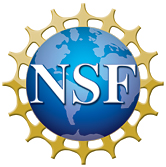 STEMSEAS is funded by NSF Grant 1701174 and NSF Grant 1701168 in partnership with:
STEMSEAS is funded by NSF Grant 1701174 and NSF Grant 1701168 in partnership with:

